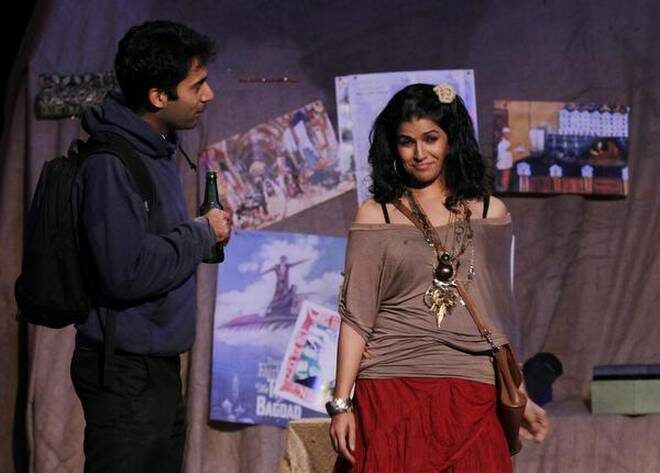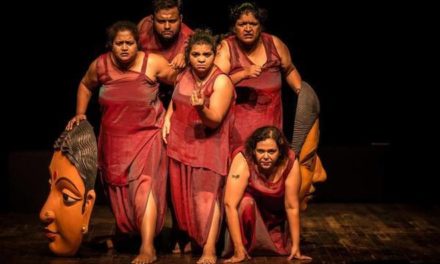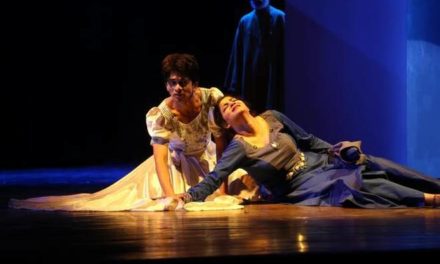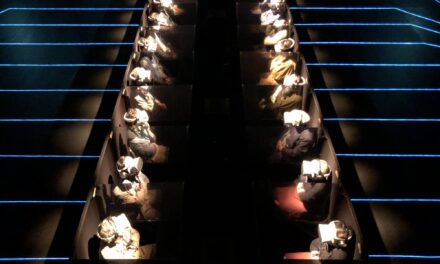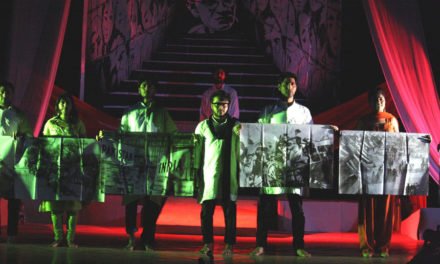The elections are done. The results are out. Everyone has an opinion. Social media is buzzing with reactions. I think it is thanks to the advent of social media that these elections and the wait until their results were characterized by a lot more involvement in general. It wasn’t just uncles and aunties who had some wisdom to share. It was all-pervading.
Coincidentally, during this charged phase, I watched two plays that were political in nature. The first, A Farming Story, written by Vineet Bhalla (it won the Sultan Padamsee Award) and directed by Faezeh Jalali, was more like an allegory. The characters were mostly “hummals” (a hybrid species of humans and animals, referred to as “maanvar” in Krrish 3), who share an unstable relationship with the dominating, rule-making humans. There is much to relate to. The townsfolk are afraid of being inclusive, and suspicious of workers. The human is manipulative and proposes building fences to keep outsiders where they belong — out. Many parallels can be drawn.
The second was Eidgah ke Jinnat, the Hindi/ Urdu version of Abhishek Majumdar’s The Djinns of Eidgah. The English original was produced by Rage Productions and featured an all-star cast including Ali Fazal, Neil Bhoopalam, and Rajat Kapur. It also featured Faezeh Jalali in a prominent part. I remember it being smart and subtly told, with arresting visuals.
Better in Hindi
The play has since evolved and the Hindi version is directed by the playwright himself. It is a highly stylized and radically different version. I do believe that this is the language more suited to the material, and makes the content more authentic. But there were some poignant moments in the earlier version that I missed. Anyhow, comparisons are odious, and I’m glad I watched it; it is an important play, and also I got a chance to see the venue, G5A, which is gaining popularity. (Eidgah ke Jinnat was the play that was shut down by an angry mob not so long ago at a theatre festival in Jaipur.)
I also attended a discussion organized by Prithvi Theatre about copyright. The focus was on the rights for the music we use in our productions. We need to pay royalty for all of it. Representatives from the Indian Performing Rights Society and Phonographic Performance Ltd. explained how most rights can be obtained by simply applying online. Whether you play a recorded track, or perform an existing song, legally you are required to obtain the rights/ pay royalty. A senior copyright lawyer warned us that copyright infringement is a criminal offense. Unfortunately, there wasn’t much information on the copyright of scripts and general design elements. Probably because the infrastructure doesn’t exist yet for theatre in India.
Get the Rights
With the Internet, it is now very easy for rights holders to discover any unlicensed production. And contrary to popular belief, Samuel French is not a one-stop shop. I have paid amounts ranging from ₹2,000 to ₹60,000 per show to organizations such as Dramatists Play Service, Knight Hall Agency, Nick Hern Books, and countless others. Most agents I have dealt with have been reasonable, and have understood the paucity of funds in theatre work. A word of advice: if the playwright is accessible, make that the first point of contact.
Michael Puzzo, New York-based playwright of The Dirty Talk, was pleasantly surprised that his play was being performed in India, and waived his fee. Hassan Abdulrazzak gave us a heavy discount on Baghdad Wedding. As did David Harrower for Blackbird. Based on friend and journalist Pragya Tiwari’s words, I once reached out to Ruskin Bond directly and found him to be wonderful and gracious. It began a relationship that has spanned a decade and three productions. So, if the writer is alive, reach out. And don’t be afraid of agents. They can be damn difficult, but they’re willing to listen.
Next time, I am going to talk about the dwindling audience for children’s plays. Is it the heat? Is it Netflix? If you have any ideas, reach out to me on social media. I’m easy to find.
This article originally appeared in The Hindu and has been reposted with permission. Read the original article.
This post was written by the author in their personal capacity.The opinions expressed in this article are the author’s own and do not reflect the view of The Theatre Times, their staff or collaborators.
This post was written by Akarsh Khurana.
The views expressed here belong to the author and do not necessarily reflect our views and opinions.

